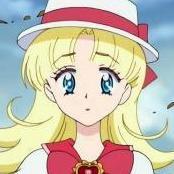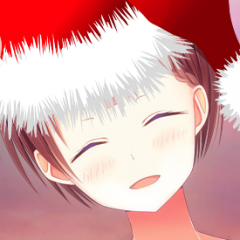Leaderboard
Popular Content
Showing content with the highest reputation on 06/24/20 in all areas
-
Hi yall, I'm trying to set up Hime to Aiyoku no Sacrifice for translation, using GARbro and Escude Editor. So far, I've been able to get the UI and scene scripts working in game. But for the life of me I can't seem to change the character names. The only complete list of names I could find is on z_sample.bin under script.bin, (Found another one, update below) But sadly, changing the names here doesn't seem to work. Looking through the engine configs and scripts, I noticed the games seem to use some sort of NAME IDs as flags, but Escude Editor only shows the readable text of the .bin files, so I have no idea what is actually happening around the dialogue. I'd really appreciate any and all information you might have. Thanks in advance. Update (Jun 24, 2020): Just found db_scr.bin under data.bin which also has a list of character names and likely the place I was looking for. However, Escude Editor can't seem to open these .bin files. Readable by notepad++ with SHIFT-JIS, but causes error when saved. If anyone has a way to edit this please let me know~ data.bin~.7z (Mega Link) Update (Jun 25, 2020): After quite a bit of fiddling with the file, I was able to get it work with just Notepad++. Turns out, if I make sure that the overall spaces between the sections remains the same, the game will launch and recognize these input with no problem. However, this method is very finicky and time-consuming. Any slight errors: missing or overdoing a single space would corrupt the entire list - meaning I've had to repack constantly for a few changes at a time to make sure that there's no errors since doing too many at once may cause me to lose track where the error might lie. Definitely doable, but hardly an efficient solution. On the top of my head, I'm thinking making a code where missing/additional spaces are automatically compensated, plus the ability to extract readable text like the Escude Editor and recompile\save the changes would be the best option. But since I have monkey level of programming knowledge, the aforementioned method is my only option. Thanks for reading and hopefully this can become helpful down the line for anyone that might run into the same problem. I would greatly appreciate any additional input you might have.1 point
-
Many VNs are NOT romantic by nature, or at least they're not focused on romantic choice, yet they feel pressure to conform to the convention of having multiple love options. Princess Waltz is illustrative: the game is pretty focused on one particular heroine, yet at the end a throwaway H-scene is tacked on with a heroine of your choice. This type of route structure often doesn't have obvious cues in the premise. There's also the type of game you're referring to: a good example would be the Cation series. They ARE focused on romance, but there's not any meaningful conflict or dramatic tension. This is more likely to be indicated in the premise.1 point
-
My least favorite route plot? That would be where the route has no dramatic tension and is just a vehicle to deliver H-scenes or other "feel-good" fluff. A lot of games just tack "routes" on to check a feature box and don't feature any meaningful divergence from the main plot.1 point
-

A guide for visual novel terms & genres, Charage, Moege, Plotege... Etc
Templarseeker reacted to SweetMonia for a topic
Hihi~ I just made a guide that explains all the -ge visual novel terms. I am aware there are many other guides for that out there, and many of them were discussed before, but I tried to make mine more detailed and easier to understand. Specially for people new to visual novel who came from Anime world (and they are many). Hope my guide is to your liking, and it's the definite guide I want it to be, and of course, any feedback about it is welcome. Here's the link for my guide:- https://SweetMonia.com/The-Lost-Konpeitos/a-guide-for-visual-novel-terms-genres-charage-moege-plotege-chuunige-ichaicha-kamige-kusoge-nakige-utsuge-eroge-nukige-lolige/1 point -

What is your least favorite type of route plot?
Plk_Lesiak reacted to TexasDice for a topic
Oh, I feel you. What bothers me a lot in these kinds of stories, is that the only ending they ever seem to go for is the "I did a bunch of things, so now your DAD accepts me and everything is fine"-ending. Would it really be so bad to actually play out the story in which the couple elopes? I assume this is yet another "Japanese thing", where doing your own thing and fulfilling your own desires against your parent's wishes is frowned upon in society and that's why the authors never do it.1 point -

A guide for visual novel terms & genres, Charage, Moege, Plotege... Etc
Templarseeker reacted to littleshogun for a topic
The name of the VN itself is Maki Fes, a doujin VN that was focused on Maki of Love Live.1 point -

What is your least favorite type of route plot?
TexasDice reacted to Plk_Lesiak for a topic
I'm not sure if this will make sense to anyone, but I'm kind of sick not only of arranged marriage plots but generally of the "defying the parents" drama, whether its about marriage, career or whatever. I know it's a very realistic trope, but as the main source of conflict and/or character development for a heroine it just lost all appeal to me a while ago, mostly because of how much it's done not just in VNs but media in general. Crystalline is a good example of using it in a way I loathe, because the already bland central heroine got her "character arc" through her parents opposing her becoming a knight... And it felt exactly just as empty and superficial as everything else in that game.1 point -
.thumb.png.ef80b4edeaf4f5215327e33be09f1628.png)
What is your least favorite type of route plot?
Mr Poltroon reacted to Dergonu for a topic
This for sure. Always find these so annoying. It just feels like a forced way to introduce drama just for the sake of it.1 point -

A guide for visual novel terms & genres, Charage, Moege, Plotege... Etc
Templarseeker reacted to Clephas for a topic
Might want to take the 'e' out of plotge. *smiles dryly* A small correction on moege vs charage... moege is a generalized term for all games that carry the 'stylized cuteness' that is 'moe'. As such, similar to charage, it is closer to an umbrella term than an actual genre. If one were to show a family tree, it would show that charage and nakige both come from moege but sometimes edge themselves out of the larger umbrella. Charage are a product of the mid-2000's, whereas moege and nakige first began to appear just before the turn of the century as they dragged themselves out from the nukige muck. Charage are essentially an evolution of moege born of the fans wanting deeper characterization and character interactions (as opposed to the purely surface-level interactions that were common early on). Tsukihime created the chuunige genre, though most people consider Dies Irae the flagship game of the genre as a whole (as in, the one that went the farthest off the deep end, lol). One stipulation about utsuge and nakige... the greatest difference between a nakige and and utsuge lies in the endings. Nakige almost always have happy endings (there might be a bad ending or a normal ending, but these are exceptions). Their purpose lies in catharsis born of release from stress and joy in renewal. Utsuge, however, are essentially games with similar (but darker) themes that don't end well for the characters in general. There are supposedly two different 'levels' of utsuge, 'soft' and 'hard'. Soft utsuge tend to focus more on sorrow and loss, and they don't necessarily drive the characters off the edge, though the endings are sorrowful and/or bittersweet at best. A few examples of a soft utsuge are Konakana and Tapestry, both of which are focused on a protagonist with a terminal illness as he tries to come to terms with his inevitable death and what it will do to the people around him. 'Hard' utsuge are focused more on despair and extreme suffering. Swan Song is an obvious example of this 'level' of the genre in English, whereas Houkago no Futekikakusha is an ideal Japanese-only example. Even a 'hard' utsuge might have one ending with a certain level of salvation, but it usually comes at a massive emotional cost for both the reader and the characters involved.1 point -

A guide for visual novel terms & genres, Charage, Moege, Plotege... Etc
Templarseeker reacted to Zakamutt for a topic
I prefer this brief guide1 point -
The 'fake girlfriend' trope. I want this one to die forever. It is the most idiotic trope in existence. It never has non-embarrassing-to-watch results. The 'reform the protagonist' trope. This one pops up in a lot of games where the protagonist has a dark past or a hidden job that requires some dirty work, and it usually has the heroine trying to 'reform' him in various ways. It annoys me about every time it pops up. I usually like the protagonist just as he is in cases like this, lol. I don't have any problems with the arranged marriage trope myself. It doesn't happen often enough anymore to be a major issue outside of ojousama-ge, where it is standard fare. Heroine has to move away happens even less often... maybe one in forty new VNs have this one pop up nowadays. Incurable disease is relatively common, with nakige in particular having a tendency to rely on this trope (without the heroine dying, of course). However, it is also a matter of execution (lol)... The incurable disease trope is something that has to be used intelligently and believably to work. Dekinai Watashi ga, Kurikaesu; Inochi no Spare; Tapestry; Kin'iro Loveriche; and Konakana all use this trope effectively to tell their stories. However, there are just as many who plop it down just for the hell of it, so I see where you are coming from.1 point



